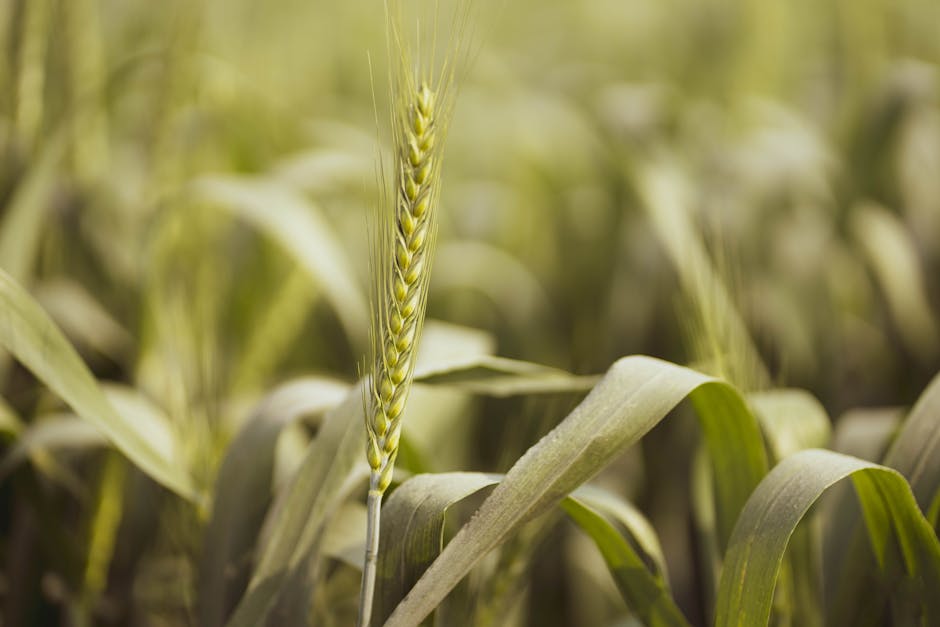A foremost concern is the escalating cost of production. Inputs like fertilizers, pesticides, and fuel have seen substantial price hikes, significantly impacting bottom lines. This inflationary pressure erodes profit margins, making it increasingly challenging for farmers to maintain profitability, particularly those with smaller operations. The volatility of these input prices further complicates financial planning, demanding keen market awareness and astute risk management strategies.
Beyond financial pressures, environmental concerns pose a substantial challenge. Maintaining soil health is critical for sustainable agriculture, yet intensive farming practices often deplete soil nutrients. Erosion, a consequence of improper land management, further degrades topsoil, reducing agricultural productivity. Conserving water resources is another pressing issue. Droughts and water scarcity are becoming more prevalent in numerous regions, forcing farmers to adopt water-efficient techniques and explore alternative irrigation methods. The need for climate-resilient farming practices is paramount, emphasizing strategies to mitigate the detrimental impacts of changing weather patterns.
Climate change itself stands as a defining hurdle. Extreme weather events, such as prolonged droughts, devastating floods, and unseasonal frosts, are becoming more frequent and intense. These unpredictable events disrupt planting schedules, damage crops, and threaten livestock, causing significant financial losses and disruptions to the food supply chain. Furthermore, rising temperatures and altered precipitation patterns directly impact crop yields and livestock health, necessitating the development of climate-resilient crops and animal breeds.
The agricultural sector is not immune to the forces of globalization and market fluctuations. Fluctuating commodity prices can significantly impact farmers’ income, making long-term planning challenging. International trade agreements and global market competition can exert immense pressures on local farmers, who may struggle to compete with producers in countries with lower labor costs or different agricultural policies. This necessitates strategies that allow farmers to adapt to shifting market demands and enhance their competitiveness.
Labour shortages present another significant concern for agricultural operations. Finding and retaining skilled workers is proving increasingly difficult in many regions. This workforce crisis affects the ability to maintain efficient operations, particularly during crucial planting and harvesting periods. Modernizing agricultural practices, through automation and mechanization, may offer a partial solution, although accessibility and affordability remain crucial factors to consider.
Emerging technologies also represent both opportunities and challenges. Precision agriculture, utilizing technologies like GPS and sensors, can optimize resource use and improve crop yields. However, access to and adoption of these technologies can be limited, particularly for small-scale farmers in developing countries. Training and support are essential for maximizing the benefits of technological advancements and bridging the digital divide within the agricultural sector.
Moreover, the growing demand for sustainable agricultural practices adds complexity. Consumers increasingly seek products produced with ethical and environmental considerations. Farmers must navigate these evolving demands, finding ways to produce food while minimizing their environmental impact and ensuring animal welfare. This encompasses everything from responsible pesticide usage to the implementation of organic farming techniques. The societal demand for transparency and traceability in food production adds further layers of complexity for farmers.
Policy and regulation play a substantial role in shaping the agricultural landscape. Government policies related to subsidies, trade agreements, and environmental regulations can either support or hinder farmers’ ability to operate efficiently and sustainably. Support schemes should carefully consider the needs of diverse farm operations, including small family farms and large-scale agribusinesses, while maintaining environmental protection and ensuring equitable practices.
Finally, the integration of agricultural operations into broader supply chains poses a critical challenge. Efficient and equitable market access and distribution channels are essential for farmers to realize the full potential of their products. Lack of access to reliable and transparent supply chains can severely limit farmers’ potential revenue streams.
Addressing these interconnected challenges requires a multifaceted approach. Investing in research and development for climate-resilient crops, water-efficient irrigation, and sustainable farming practices are essential. Policymakers must develop supportive frameworks that encourage innovation and adaptation while upholding environmental standards. Farmers themselves need opportunities for education and training, enabling them to adopt new technologies and strategies. Ultimately, fostering collaboration among farmers, researchers, policymakers, and consumers is crucial to building a more sustainable and resilient agricultural system that can effectively feed a growing global population. This collaborative effort demands a commitment to shared responsibility and a unified understanding of the pivotal role agriculture plays in our global future.
